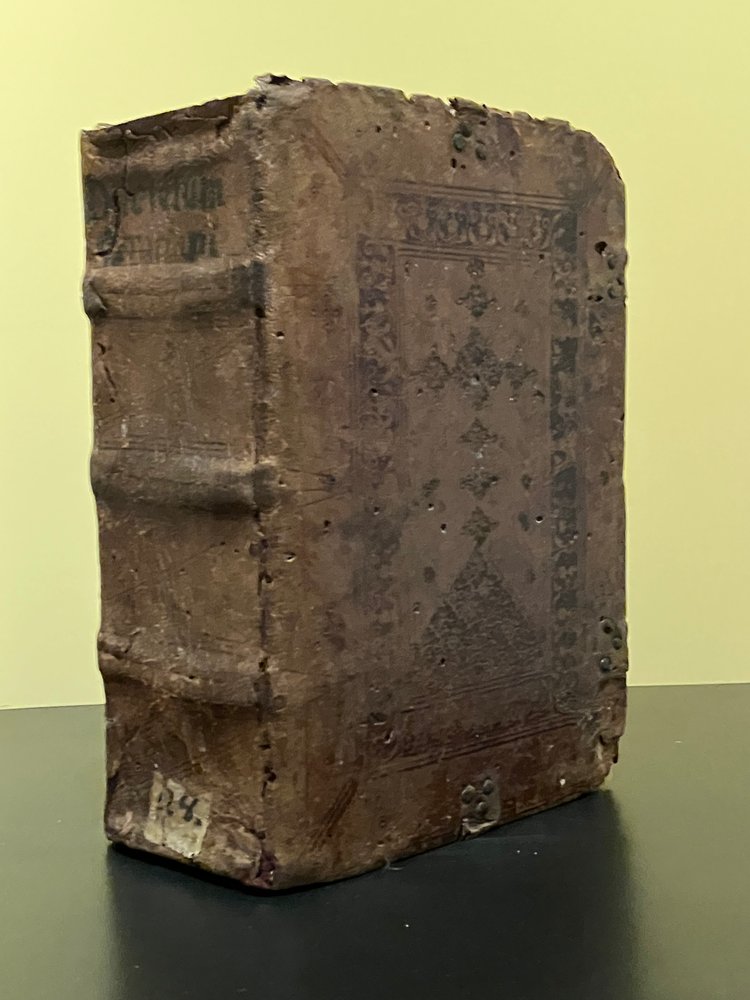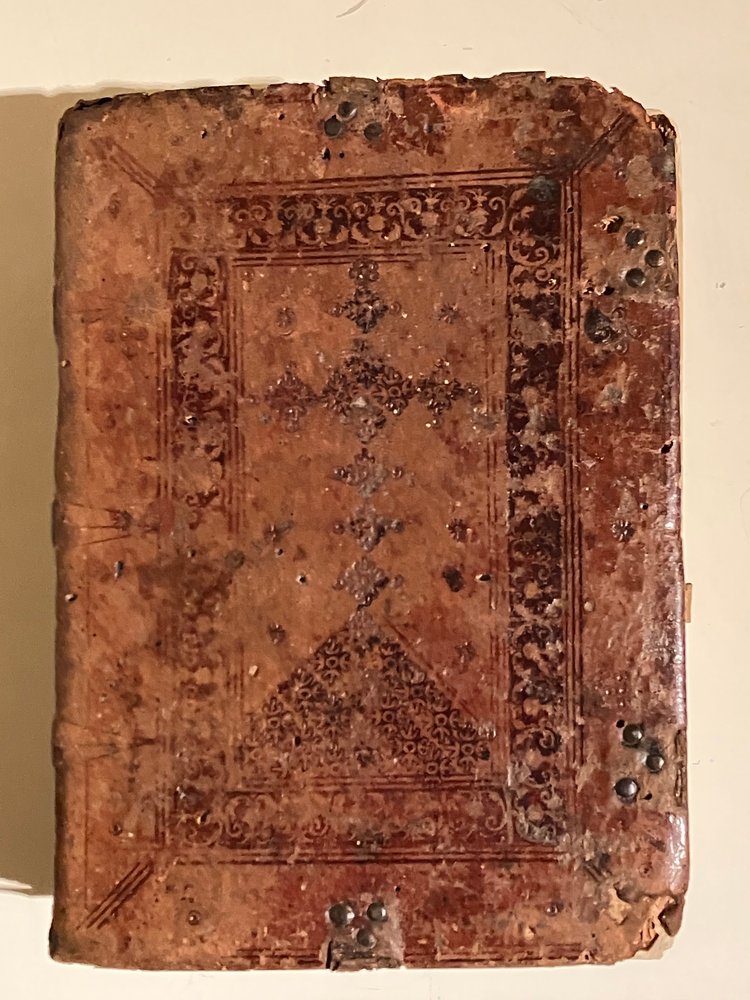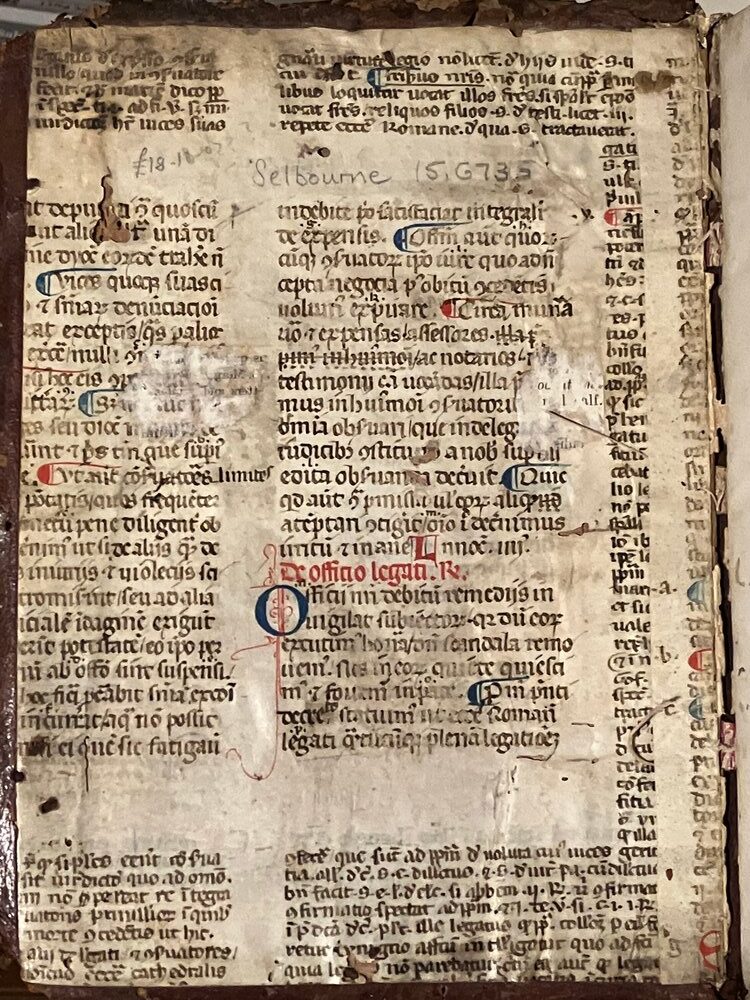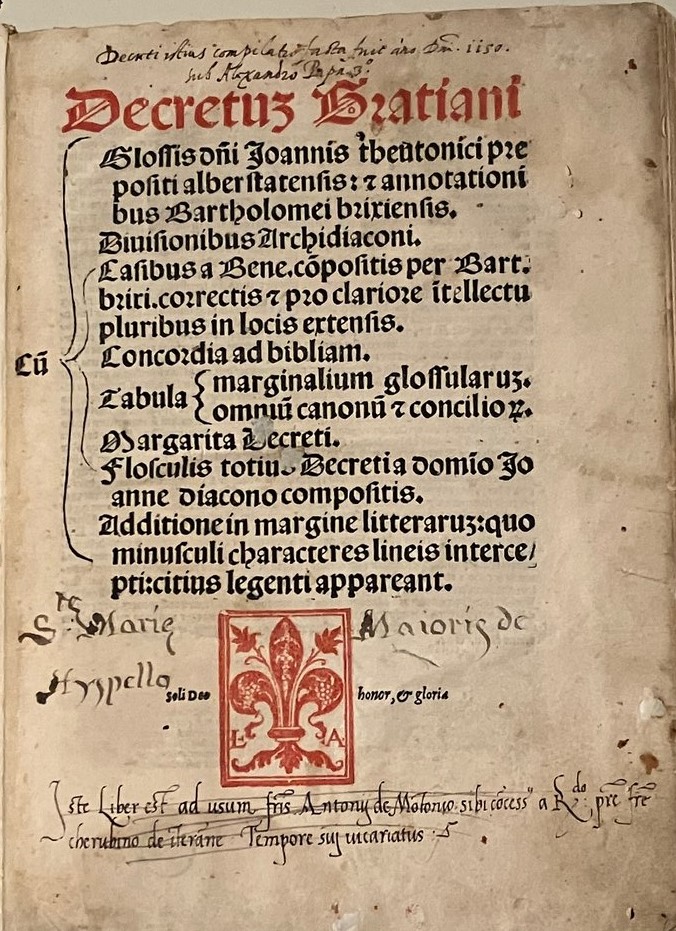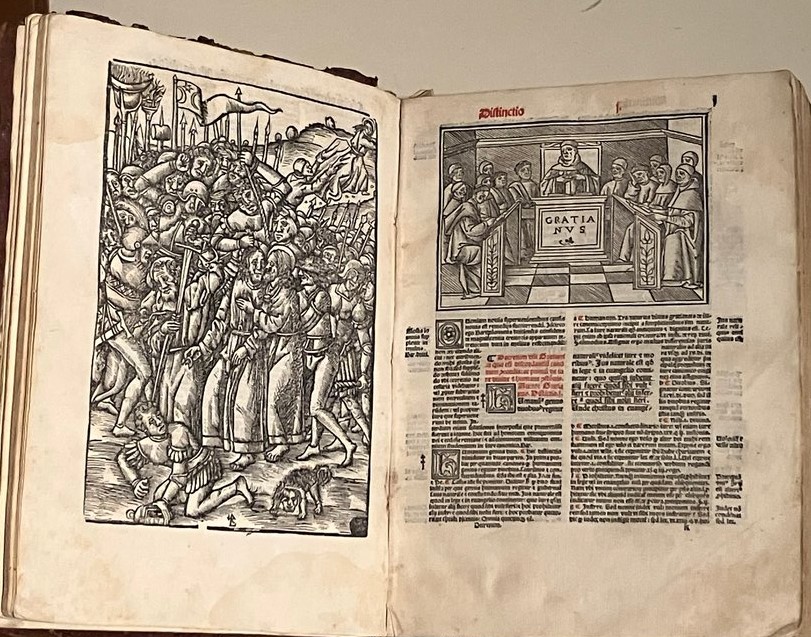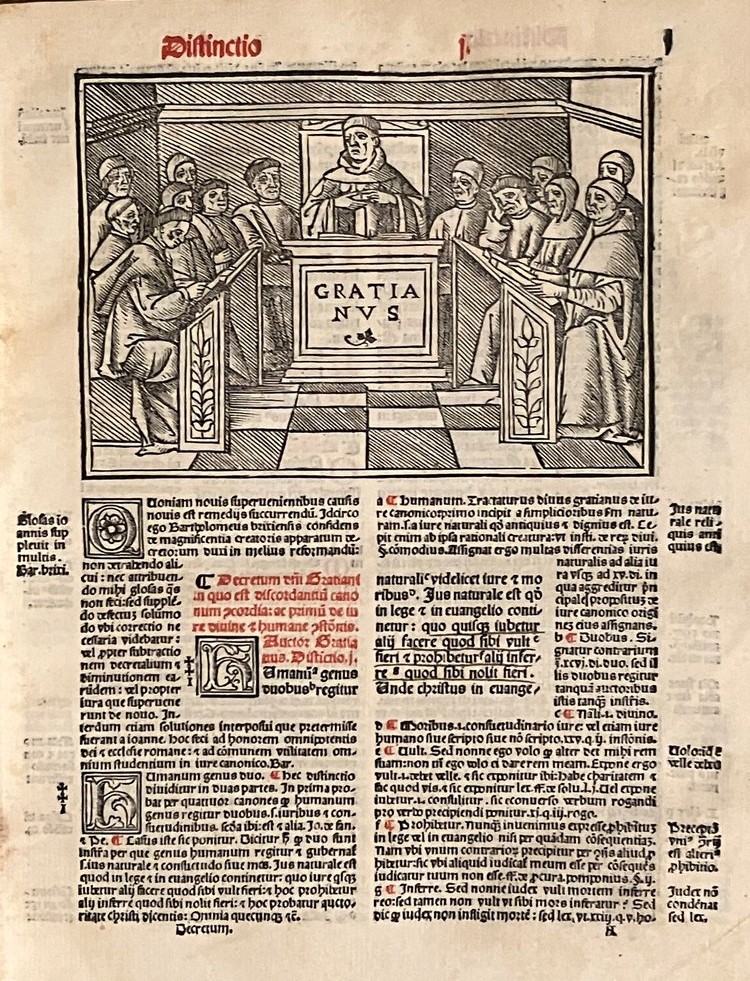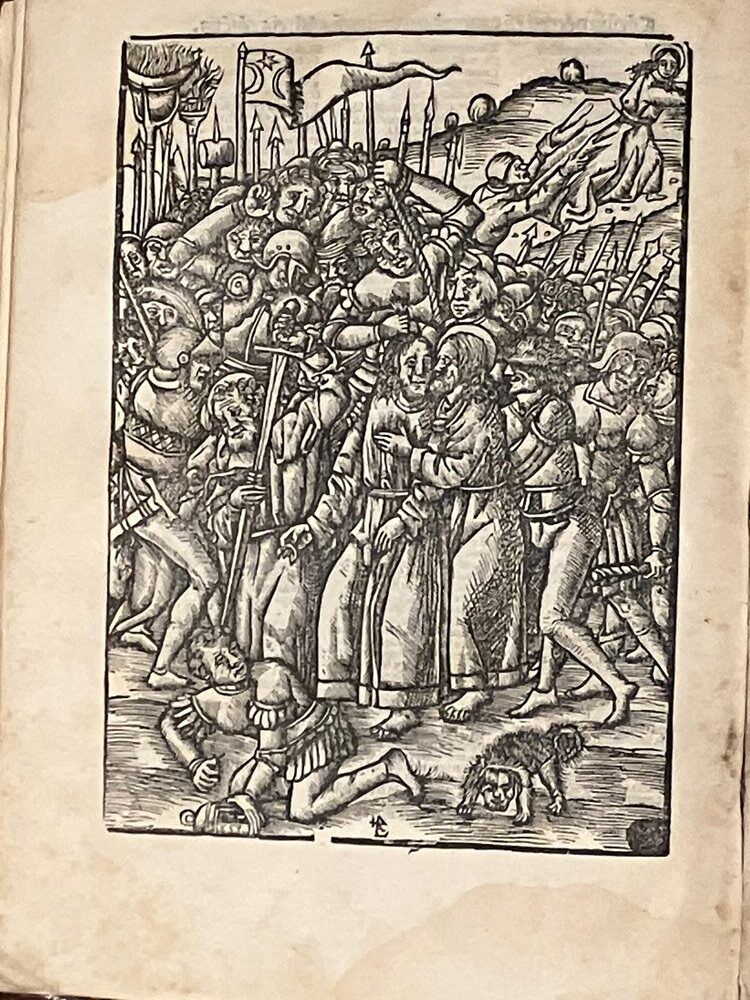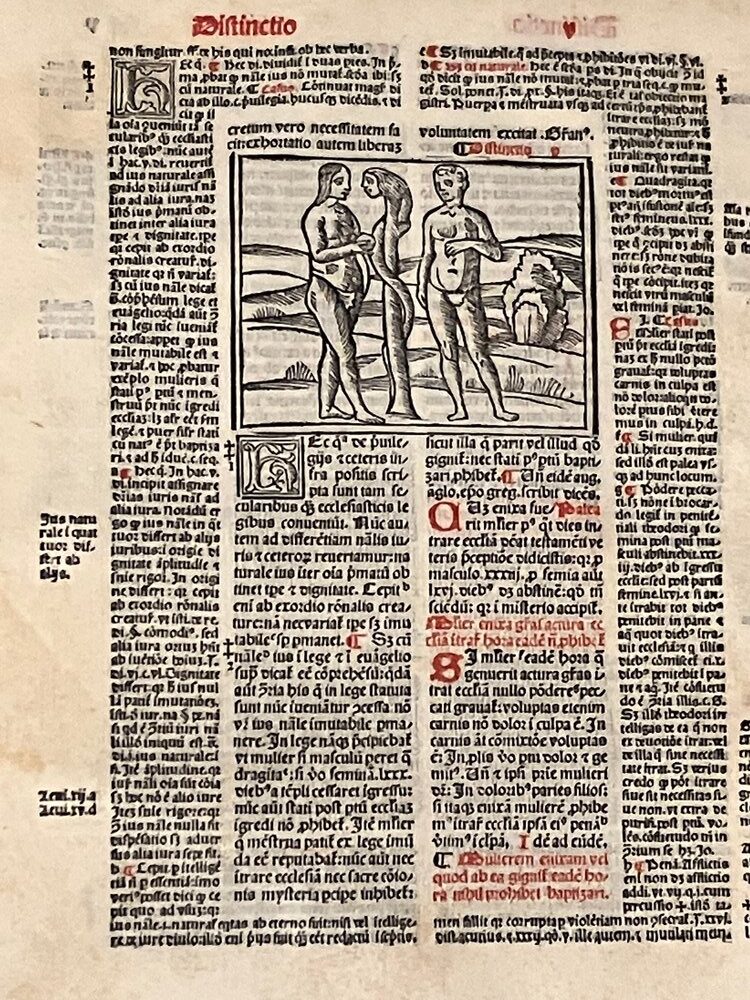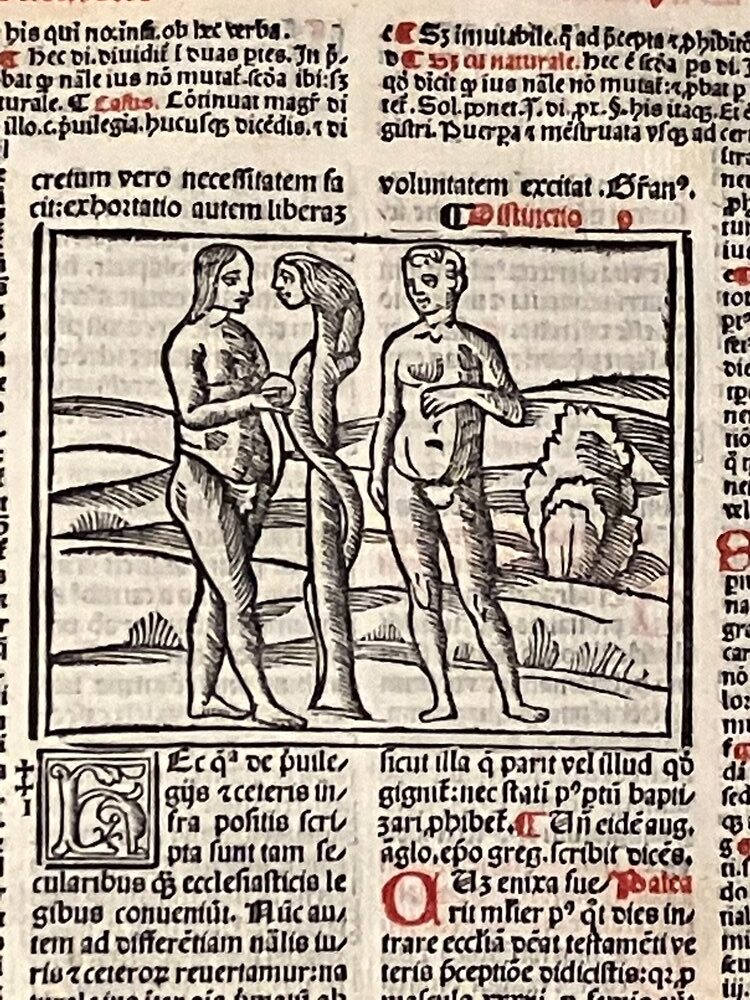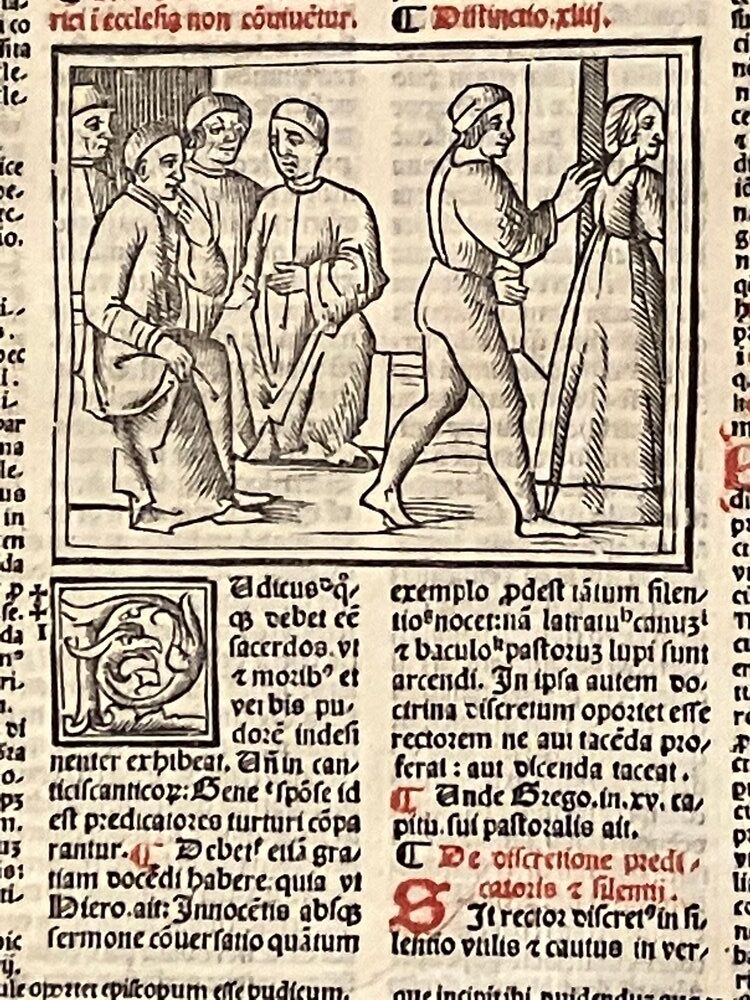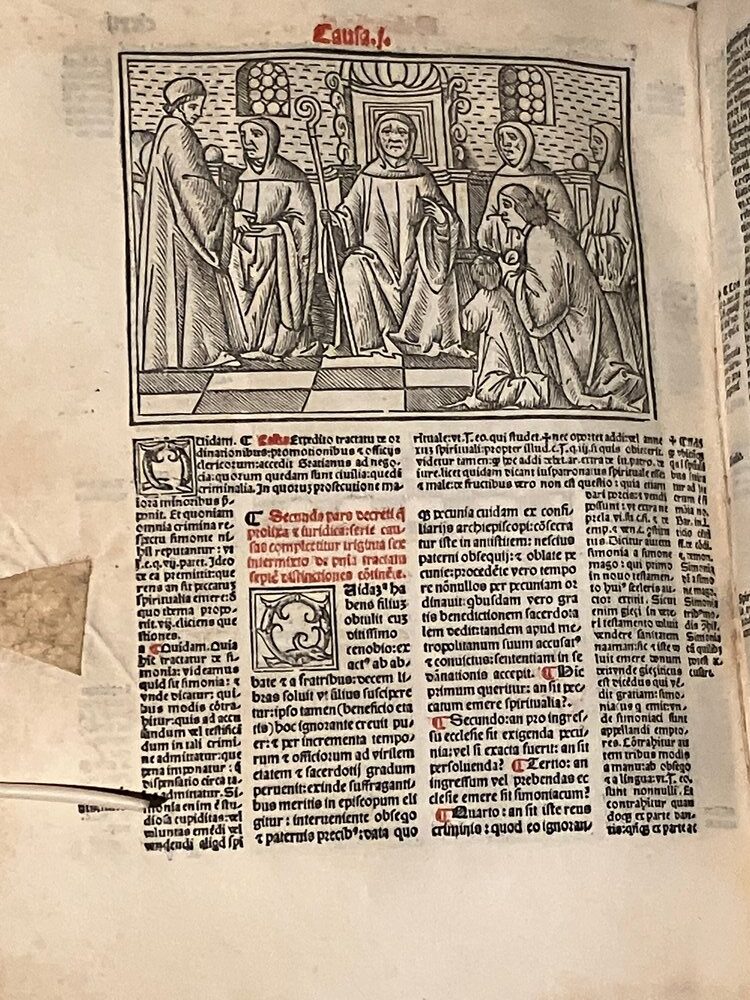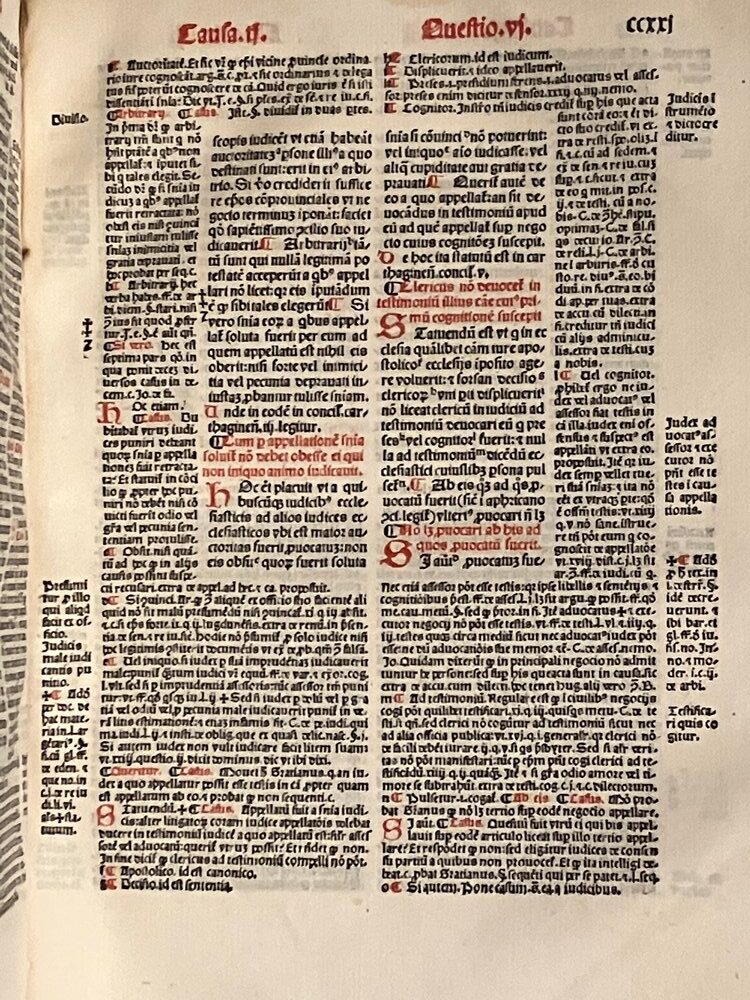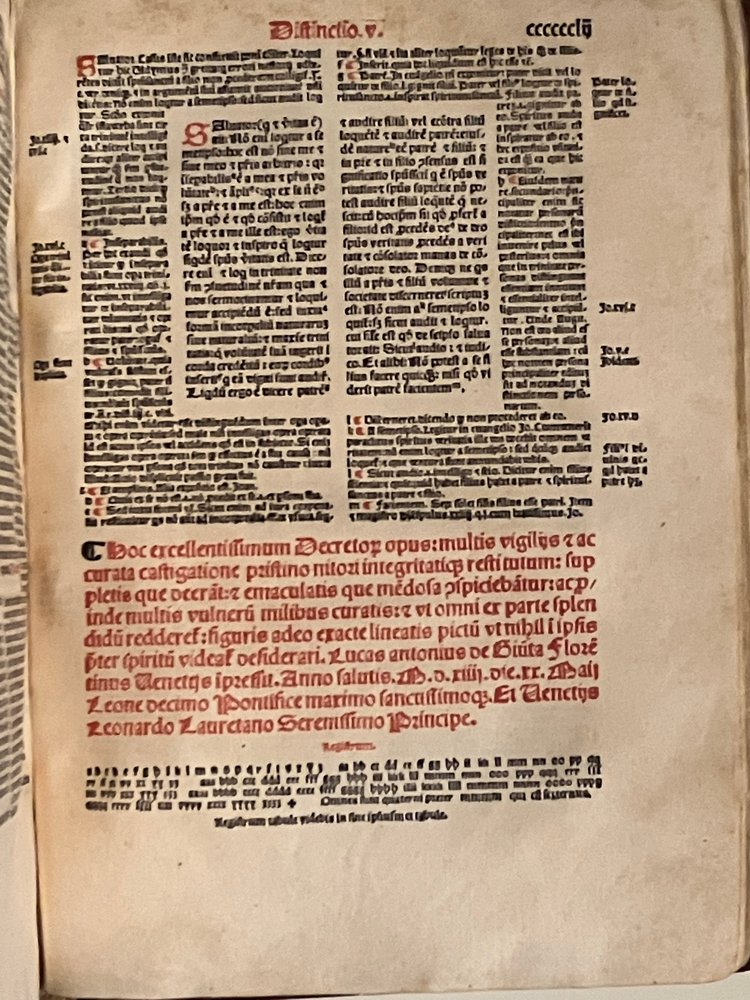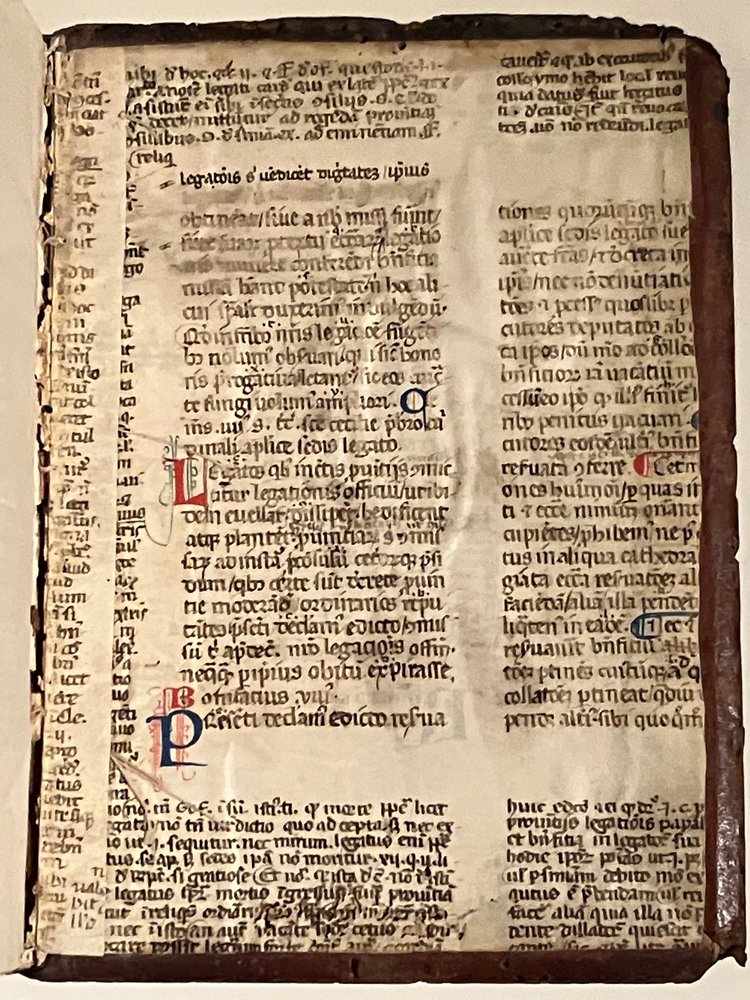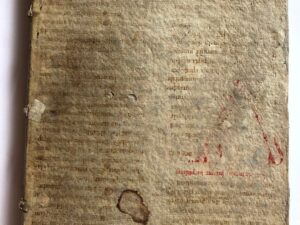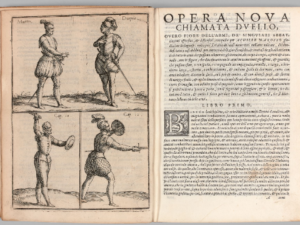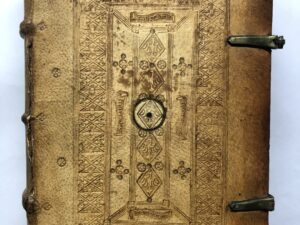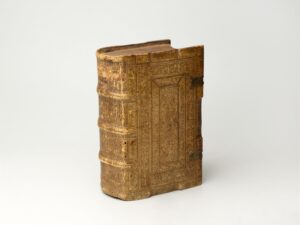Description
Decretum Gratiani. Cum glossis Ioannis Theutonici et annotationibus prepositi alberitatensis: & annotationibus Bartholomei Brixiensis. Diuisionibus Archidiaconi. Casibus a Bene, compositis per Bart. Brixi. correctis & pro clariore intellectu pluribus in locis extensis. Concordia ad bibliam. Tabula marginalium glossularum omnium canonum et conciliorum. Margarita decreti. Flosculis totius decreti a domino Ioanne Diacono compositis. Additione in margine litterarum quo minuscoli characteres lineis intercepticitius legenti appareant.
[Venezia : Luca Antonio Giunta il vecchio] (Venetijs : Lucas Antonius de Giunta Florentinus impressit, 1514 die XX Maij).
In-4to, contemporary blindstamped calf over wooden boards, remnants of metal hasps, worn. Leaves [38], CCCCCCLII, [76]. Gothic letter, commentary surrounding double column text, with side glosses, printed in red and black, printer’s device on title, ca. 130 woodcut illustrations (3 full-page), vellum leaves from a fifteenth century illuminated legal manuscript used as paste-downs, without free endpapers, title with a few small holes touching letters, neat ink annotations in approximately 10 margins, tear to f. 533.
Comments:
Typographically beautiful edition of Gratianus’ Decretum by the Venetian printer Luca Antonio Giunta the elder. The text is printed mirroring the manuscript editions of the Decretum with the text surrounded by the commentators’ glosses and illustrated by more than 130 woodcuts. The Concordia Discordantia Canonum, or Decretum Gratiani, is a collection of canon law compiled and written in the 12th century as a legal textbook by the jurist and Camaldolese monk known as Gratian. Together with later legal texts (The “Decretals” of Gregory IX; those of Boniface VIII (Sixth Book of the Decretals); those of Clement V (Clementinæ), the Extravagantes of John XXII, and the Extravagantes Communes) it constituted for century the cornerstone of the Corpus Juris Canonici, the main source of the canon law of the Catholic Church, in force until 1917. In addition to the Glossa Ordinaria of Joannes Teutonicus and the glosses of Bartolomeo da Brescia this edition includes the Flos Decreti of Johannes Hispanus, a set of commentaries on Gratian, and the Margarita Decreti of Polonus Martinus, a collection of excerpts from the Decretals of Gregory IX. A complete work (and bibliographically distinct), it is part of a three-volume edition of the Corpus Juris Canonici issued by Giunta in 1514.

